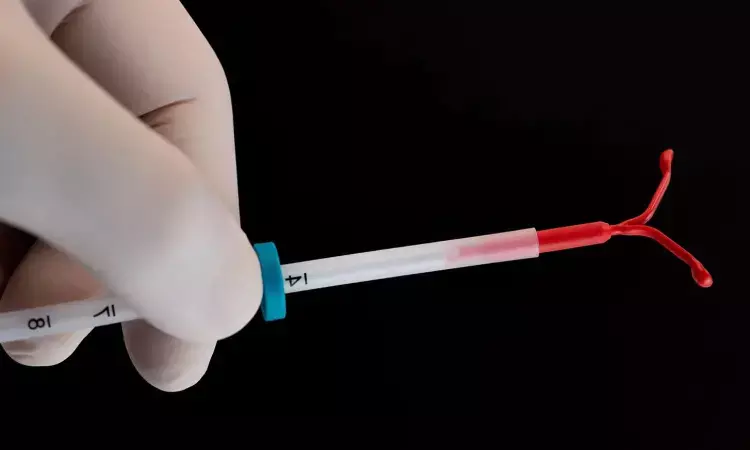- Home
- Medical news & Guidelines
- Anesthesiology
- Cardiology and CTVS
- Critical Care
- Dentistry
- Dermatology
- Diabetes and Endocrinology
- ENT
- Gastroenterology
- Medicine
- Nephrology
- Neurology
- Obstretics-Gynaecology
- Oncology
- Ophthalmology
- Orthopaedics
- Pediatrics-Neonatology
- Psychiatry
- Pulmonology
- Radiology
- Surgery
- Urology
- Laboratory Medicine
- Diet
- Nursing
- Paramedical
- Physiotherapy
- Health news
- Fact Check
- Bone Health Fact Check
- Brain Health Fact Check
- Cancer Related Fact Check
- Child Care Fact Check
- Dental and oral health fact check
- Diabetes and metabolic health fact check
- Diet and Nutrition Fact Check
- Eye and ENT Care Fact Check
- Fitness fact check
- Gut health fact check
- Heart health fact check
- Kidney health fact check
- Medical education fact check
- Men's health fact check
- Respiratory fact check
- Skin and hair care fact check
- Vaccine and Immunization fact check
- Women's health fact check
- AYUSH
- State News
- Andaman and Nicobar Islands
- Andhra Pradesh
- Arunachal Pradesh
- Assam
- Bihar
- Chandigarh
- Chattisgarh
- Dadra and Nagar Haveli
- Daman and Diu
- Delhi
- Goa
- Gujarat
- Haryana
- Himachal Pradesh
- Jammu & Kashmir
- Jharkhand
- Karnataka
- Kerala
- Ladakh
- Lakshadweep
- Madhya Pradesh
- Maharashtra
- Manipur
- Meghalaya
- Mizoram
- Nagaland
- Odisha
- Puducherry
- Punjab
- Rajasthan
- Sikkim
- Tamil Nadu
- Telangana
- Tripura
- Uttar Pradesh
- Uttrakhand
- West Bengal
- Medical Education
- Industry
Levonorgestrel-releasing IUD Use associated with Site-Specific Gynecologic and Breast Cancers: Study

The levonorgestrel-releasing intrauterine device (LNG-IUD) is commonly utilized to manage conditions such as endometriosis and menorrhagia. However, it is becoming a popular choice for contraception among young women due to its capacity to suppress menstruation and alleviate discomfort. LNG-IUD is known for its high effectiveness and satisfaction, surpassing that of oral contraceptives. Recent nationwide cohort study in Sweden provides novel evidence on the association between the use of levonorgestrel-releasing intrauterine device (LNG-IUD) and the risk of site-specific gynecologic and breast cancers, considering the influence and potential interaction of family history of cancer. The key findings are: 1. LNG-IUD use was associated with a 13% higher risk of breast cancer compared to non-users. Importantly, a significant additive interaction was observed between LNG-IUD use and family history of breast cancer, indicating a relative 19% excess risk for interaction and 1.63 additional cases per 10,000 person-years. 2. LNG-IUD use was associated with a 33% lower risk of endometrial cancer, a 14% lower risk of ovarian cancer, and a 9% lower risk of cervical cancer compared to non-users. 3. The site-specific effects of LNG-IUD on gynecologic and breast cancers were consistent across different age and menopausal status subgroups, though the results were not statistically significant likely due to small sample sizes. 4. While LNG-IUD use alone slightly increased the risk of breast cancer, the risk was significantly higher among women with a family history of breast cancer. This suggests the need for close monitoring for breast cancer development, especially in women with a family history.
Conclusions
The study highlights the importance of considering the influence of family history of cancer when evaluating the association between LNG-IUD use and site-specific gynecologic and breast cancers. The observed effect size for breast cancer is small, and the results are limited by the observational study design. Further research, including randomized trials, is needed to confirm these findings and establish causal relationships.
Key Points -
1. The study found that use of a levonorgestrel-releasing intrauterine device (LNG-IUD) was associated with a 13% higher risk of breast cancer compared to non-users. However, this risk was significantly higher, with a 19% excess risk, among women with a family history of breast cancer.
2. LNG-IUD use was associated with a 33% lower risk of endometrial cancer, a 14% lower risk of ovarian cancer, and a 9% lower risk of cervical cancer compared to non-users.
3. The site-specific effects of LNG-IUD on gynecologic and breast cancers were consistent across different age and menopausal status subgroups, though the results were not statistically significant likely due to small sample sizes.
4. The study highlights the importance of considering the influence of family history of cancer when evaluating the association between LNG-IUD use and site-specific gynecologic and breast cancers.
5. The observed effect size for breast cancer is small, and the results are limited by the observational study design.
6. Further research, including randomized trials, is needed to confirm these findings and establish causal relationships.
Reference –
Yi H, Zhang N, Huang J, et al. Association of levonorgestrel-releasing intrauterine device with gynecologic and breast cancers: a national cohort study in Sweden. Am J Obstet Gynecol 2024;231:450.e1-12
Dr Kamal Kant Kohli-MBBS, DTCD- a chest specialist with more than 30 years of practice and a flair for writing clinical articles, Dr Kamal Kant Kohli joined Medical Dialogues as a Chief Editor of Medical News. Besides writing articles, as an editor, he proofreads and verifies all the medical content published on Medical Dialogues including those coming from journals, studies,medical conferences,guidelines etc. Email: drkohli@medicaldialogues.in. Contact no. 011-43720751


